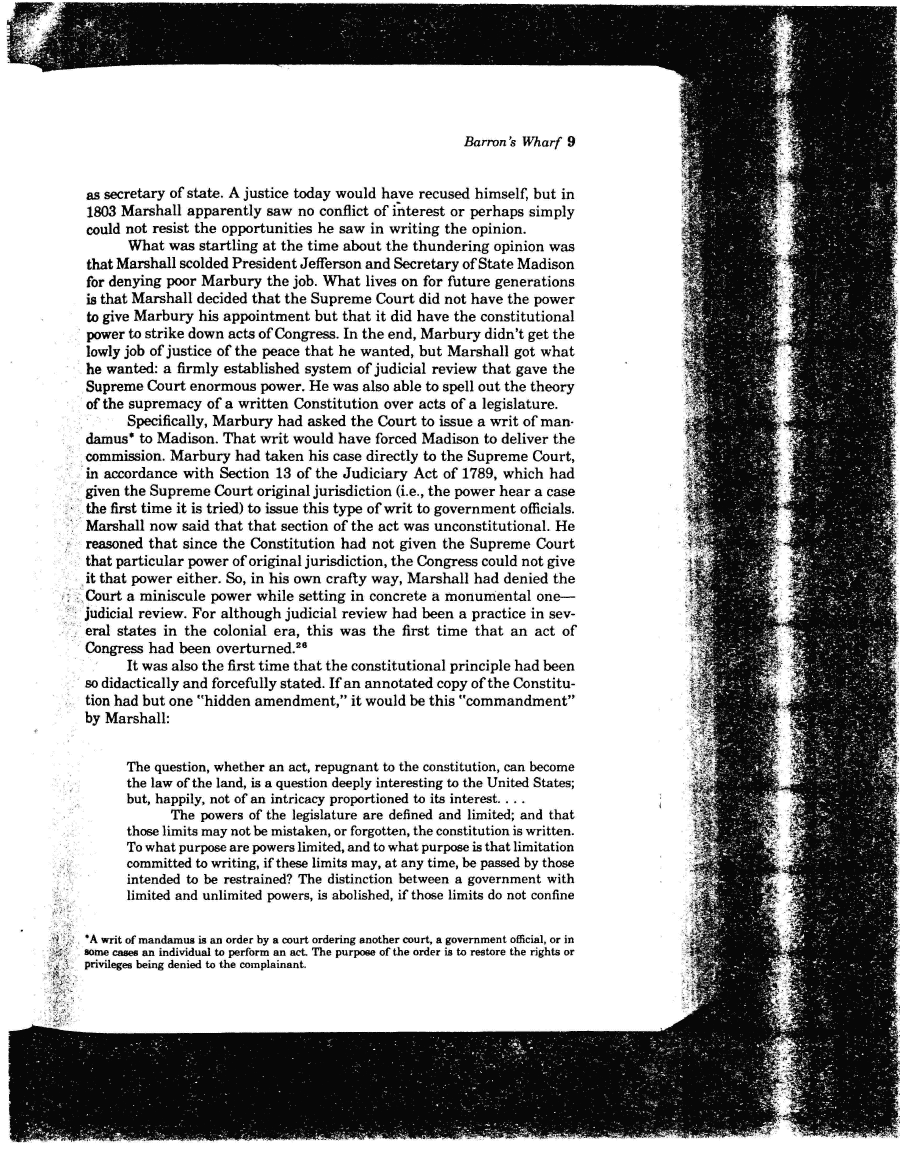|
Barren's Wharf 9
as secretary of state. A justice today would have recused himself, but in
1803 Marshall apparently saw no conflict of interest or perhaps simply
could not resist the opportunities he saw in writing the opinion.
What was startling at the time about the thundering opinion was
that Marshall scolded President Jefferson and Secretary of State Madison
for denying poor Marbury the job. What lives on for future generations
is that Marshall decided that the Supreme Court did not have the power
to give Marbury his appointment but that it did have the constitutional
power to strike down acts of Congress. In the end, Marbury didn't get the
lowly job of justice of the peace that he wanted, but Marshall got what
he wanted: a firmly established system of judicial review that gave the
Supreme Court enormous power. He was also able to spell out the theory
of the supremacy of a written Constitution over acts of a legislature.
Specifically, Marbury had asked the Court to issue a writ of man-
damus* to Madison. That writ would have forced Madison to deliver the
commission. Marbury had taken his case directly to the Supreme Court,
in accordance with Section 13 of the Judiciary Act of 1789, which had
given the Supreme Court original jurisdiction (i.e., the power hear a case
the first time it is tried) to issue this type of writ to government officials.
Marshall now said that that section of the act was unconstitutional. He
reasoned that since the Constitution had not given the Supreme Court
that particular power of original jurisdiction, the Congress could not give
it that power either. So, in his own crafty way, Marshall had denied the
-.Court a miniscule power while setting in concrete a monumental oneó
judicial review. For although judicial review had been a practice in sev-
eral states in the colonial era, this was the first time that an act of
Congress had been overturned.26
It was also the first time that the constitutional principle had been
so didactically and forcefully stated. If an annotated copy of the Constitu-
tion had but one "hidden amendment," it would be this "commandment"
by Marshall:
The question, whether an act, repugnant to the constitution, can become
the law of the land, is a question deeply interesting to the United States;
but, happily, not of an intricacy proportioned to its interest. . . .
The powers of the legislature are defined and limited; and that
those limits may not be mistaken, or forgotten, the constitution is written.
To what purpose are powers limited, and to what purpose is that limitation
committed to writing, if these limits may, at any time, be passed by those
intended to be restrained? The distinction between a government with
limited and unlimited powers, is abolished, if those limits do not confine
*A writ of mandamus is an order by a court ordering another court, a government official, or in
some cases an individual to perform an act. The purpose of the order is to restore the rights or
privileges being denied to the complainant.
|

